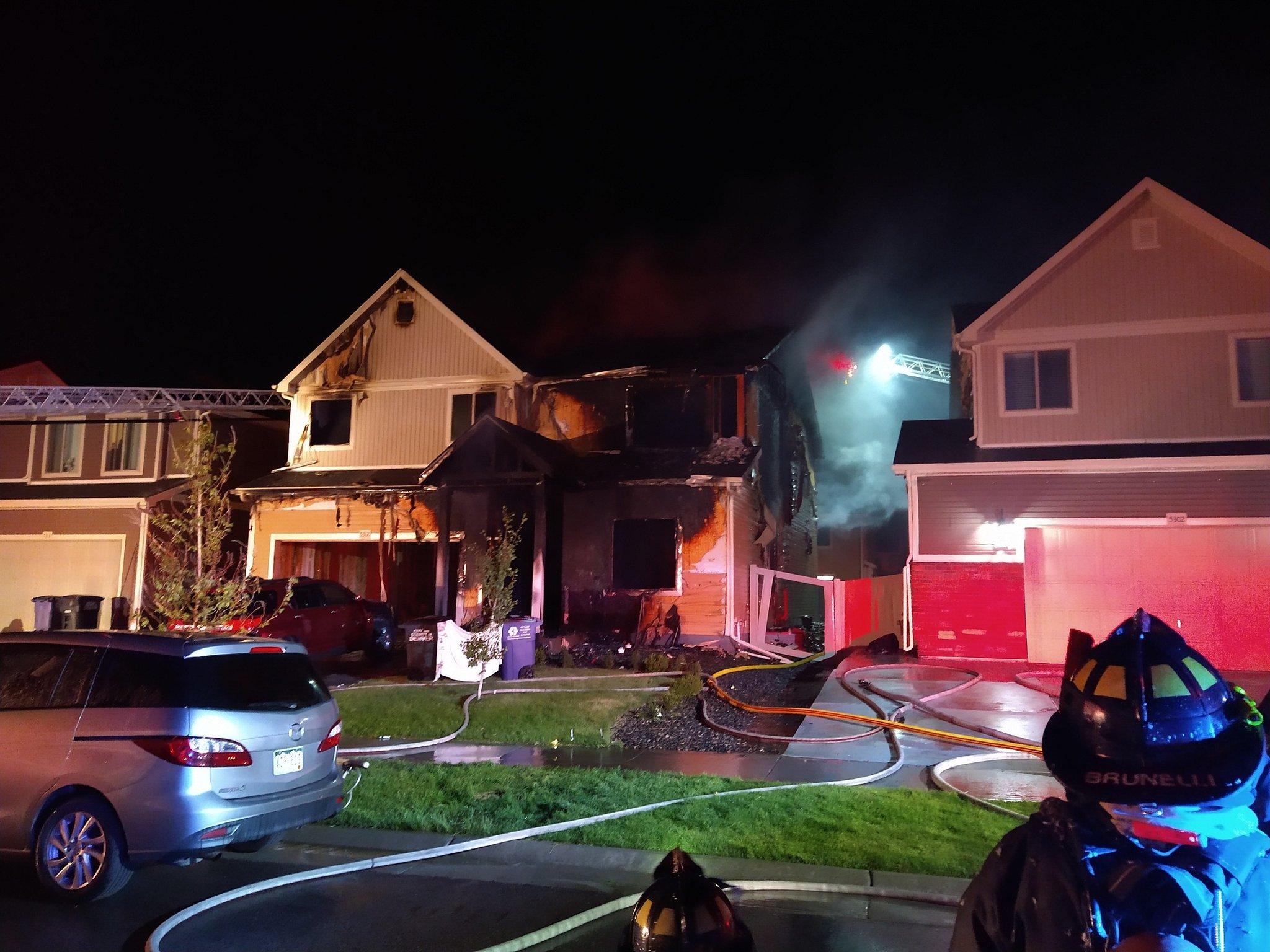By Colleen Slevin, Associated Press
DENVER (AP) -- Minutes before a major house fire erupted and killed five people in 2020, a surveillance camera captured three people outside in full face masks and hoodies looking around the backyard of the home where members of three families of Senegalese immigrants lived.
The investigation of the Aug. 5, 2020 fire dragged on for months amid fears that the fire had been a hate crime but authorities ended up alleging another disturbing motive -- three teens had set fire to the house out of revenge for a stolen iPhone, which one of them mistakenly traced to the home in a neighborhood near Denver's airport.
Screaming could be heard and three people escaped by jumping out an upstairs windows, but five people were found dead inside the home in the 2020 fire.
Nearly two years after their arrest, one of the teens is set to be sentenced Wednesday for his role in the fire. Dillon Siebert, 14 at the time of the fire and 17 now, was initially charged in juvenile court with first-degree murder among 47 counts. The others, Kevin Bui and Gavin Seymour, both 16 then, were charged as adults with first-degree murder, attempted murder, arson and burglary.
Online court records show Siebert, whose name was not previously released because his case was in juvenile court, pleaded guilty to second-degree murder in December after his case was transferred to regular court.
Bui -- who was identified as a suspect with the others after police asked Google to release the name of the person who had searched for the home's address within 15 days of the fire -- allegedly told investigators that he had been robbed the month before the fire while trying to buy a gun. He said that his phone, money and shoes were stolen.
Using an app to track his phone, Bui said he learned it was at the home and believed the people who robbed him lived there -- though he did not research the home's residents, the lead investigator in the case, Detective Neil Baker, testified during a hearing about evidence in the case in 2021.
Bui admitted to setting the fire, only to find out the next day through news coverage that the victims were not the people who robbed him, Baker said.
Killed in the fire were Djibril and Adja Diol, their 22-month-old daughter Khadija, as well as Djibril Diol's sister Hassan Diol and her infant daughter Hawa Baye. Their bodies were found on the first floor of the home near the front door. One of Hassan Diol's arms was found wrapped around her baby, according to Baker.
Their deaths prompted expressions of sympathy from Senegal's president, Macky Sall, and a visit from the West African country's consul general.
During the 2021 evidentiary hearing to weigh the evidence in the case, lawyers for Bui and Seymour emphasized that in their messages, which were obtained by investigators, they never talked about a specific plan to set a fire or expressed a desire to hurt anyone. Another investigator, Bureau of Alcohol, Tobacco, Firearms and Explosives agent Mark Sonnendecker, said Bui said he never intended for anyone to die.
However, Judge Martin Egelhoff ruled that there was enough evidence for Bui and Seymour's case to go to trial, noting that the fire was allegedly set in the middle of the night when people would likely be at home and sleeping.
The prosecution of the two older teens is on hold because their lawyers have challenged the use of Google keyword search results, obtained by police with a search warrant, calling it a "digital dragnet" that swept up searches of billions of people around the world. Prosecutors say that based on the initial lack of a motive and the expected planning that would have been done to carry out what was believed was a personal attack, investigators decided that the suspects seen on the video would have searched for directions to the home.
The Google search results led investigators to issue additional warrants for the suspects' cell phone and social media use.
Egelhoff denied an attempt last year to have the Google search evidence thrown out, but defense lawyers have now asked the Colorado Supreme Court to consider the issue. The court is scheduled to hear arguments on it in May.













